IPH Team
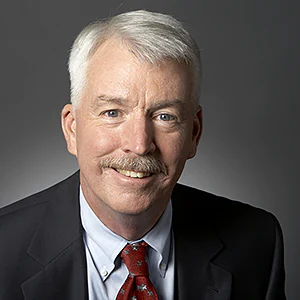
Philip J. Landrigan. MD, MSc
Dr. Landrigan is Director of the Program for Global Public Health and the Common Good and Director of the Global Observatory on Planetary Health at Boston College, where he is a Professor. He is a pediatrician, public health physician, and epidemiologist.
Author of over 700 scientific publications and 10 books, in his research he uses the tools of epidemiology to elucidate connections between toxic chemicals and human health, especially the health of infants and children. He is particularly interested in understanding how toxic chemicals injure the developing brains and nervous systems of children and in translating this knowledge into public policy to protect health.
In New York City, Dr. Landrigan worked for many years in the Icahn School of Medicine at Mount Sinai, and he was involved there in the medical and epidemiologic follow-up of 20,000 9/11 rescue workers. From 2015 to 2017, he co-chaired the Lancet Commission on Pollution and Health. He is a member of the National Academy of Medicine.
Anne Robertson
Anne is a dedicated advocate of children’s health organizations and has served on the boards of several national health organizations and has concentrated her energies on toxic chemicals and human health, especially the health of our children.
Anne is the great-granddaughter of Richard S. Reynolds, the founder of The Reynolds Metals Corporation and the great, great-grand niece of RJ Reynolds Tobacco. This upbringing has provided a very unique perspective on the power big business can yield in the marketplace and the need for influencing industry standards, policy reform and regulations that prioritize human health and the environment to create positive environmental health impact at a systemic level.
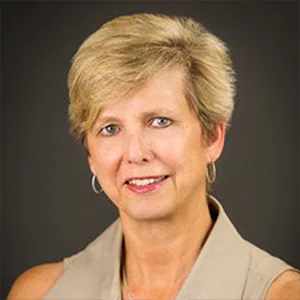
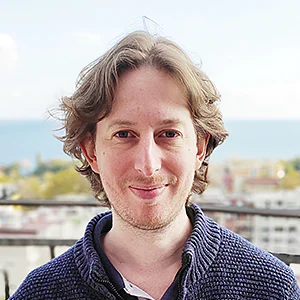
Henry Rowlands
Henry is the Founder of The Detox Project, which manages the Glyphosate Residue Free international certification, which has a $800 Million footprint in the food and supplement market in the U.S. and globally. The Detox Project also promotes and assists on the development of new affordable and accurate technology to measure food contaminants.
Henry also founded Sustainable Pulse an online international media focusing on sustainable agriculture and sustainable food and is the CEO of Soil in Formation, PBC, a U.S. company concentrating on big soil data and the measurement, reporting and verification of soil health parameters in real-time and in-situ, in collaboration with the University of Texas at Dallas, Texas A&M and Arizona State University.
Advisory Board
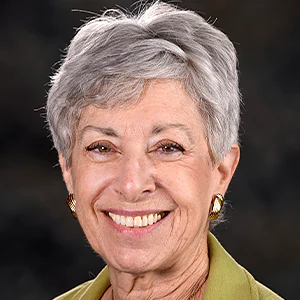
Dr. Linda Birnbaum
Linda S. Birnbaum, Ph.D., D.A.B.T., A.T.S. is the former Director of the National Institute of Environmental Health Sciences (NIEHS) of the National Institutes of Health, and the National Toxicology Program (NTP). After retirement, she was granted scientist emeritus status and still maintains a laboratory. As a board-certified toxicologist, Birnbaum served as a federal scientist for 40 years. Prior to her appointment as NIEHS and NTP Director in 2009, she spent 19 years at the U.S. Environmental Protection Agency (EPA), where she directed the largest division focusing on environmental health research.
Birnbaum has received many awards and recognitions. In 2016, she was awarded the North Carolina Award in Science. She was elected to the Institute of Medicine of the National Academies, one of the highest honors in the fields of medicine and health. Dr. Birnbaum recently received the Winslow Award, the highest honor from the Yale School of Public Health and was elected an AAAS Fellow.
Dr. Hervé Raps
Dr. Hervé Raps is the Research Delegate Physician at the Monaco Scientific Center, the National Research Agency of the Principality of Monaco where he leads the Clinical Research support activity and the “Ocean and Human Health” theme. He is conducting awareness-raising, information, publications and capacity-building activities on the human health impacts of climate change and pollution, particularly those linked to the oceans, and/or plastics. for a range of stakeholders.
He has been on the steering committee and among the authors of the Monaco Commission on Ocean Pollution and Human Health and the Minderoo-Monaco Commission on Plastics and Human Health. He is a member of the Steering Committee of the “Espace Ethique PACA Corse” and the Scientific Council of Académie 3 at the Université Côte d’Azur in France.
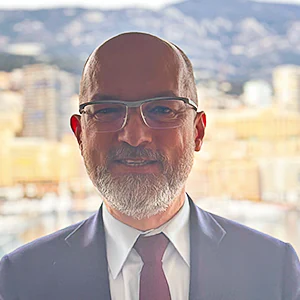
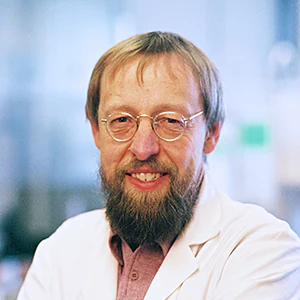
Dr. Kurt Straif
Research Professor – Co-Director, Global Observatory on Planetary Health at Boston College. Morissey College of Arts and Sciences, Schiller Institute for Integrated Science and Society, and Connell School of Nursing
Before joining Boston College as a Visiting Professor (2019-2022) and Research Professor (since 2022), Dr. Straif worked for almost two decades at the International Agency for Research on Cancer (IARC/WHO) in Lyon, France as the Head of the IARC Monographs Program and the Section of Evidence Synthesis and Classification (encompassing the groups of IARC Monographs, IARC Handbooks of Cancer Prevention, WHO Classification of Tumours). He was responsible for the series of Monographs on the carcinogenicity of tobacco (including involuntary smoking, smokeless tobacco and betel quid); air pollution (including indoor and outdoor air pollution, diesel engine exhaust); radiofrequency electromagnetic fields; shift-work and circadian disruption; the IARC Handbooks of Cancer Prevention including Handbooks on cancer preventive effects of avoidance of obesity and screening for breast and colorectal cancer. He contributes his expertise to the Global Burden of Disease project to inform global and local policy for cancer prevention.
Dr. Christopher States
Christopher States, Ph.D. is Professor, Distinguished University Scholar and Vice Chair for Research in the Department of Pharmacology and Toxicology and Interim Vice Dean for Research in the School of Medicine, and Director of the NIEHS-funded Center for Integrative Environmental Health Sciences at University of Louisville. He has served multiple leadership roles in the Society of Toxicology including President of the Ohio Valley Regional Chapter, President of the Metals Specialty Section, and most recently as Chair of the Board of Publications.
States has served on multiple NIH study sections and DoD grant review panels, journal editorial boards, and multiple committees reviewing the USEPA IRIS program on Arsenic, reflecting his internationally recognized expertise in arsenic toxicology. His leadership in the field, contributions to metals toxicology and mentoring junior scientists earned him a Career Achievement Award from the Metals Specialty Section. He is recognized in the Stanford University/Elsevier 2023 survey as being in the top 2% of cited scientists and is a Marquis Who’s Who Honored Listee.
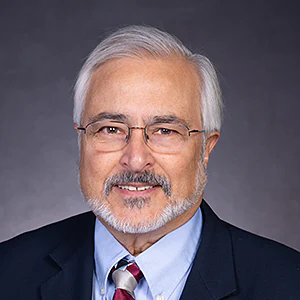
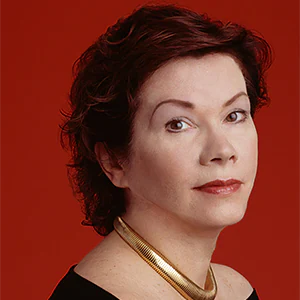
Dr. Maureen Cropper
Maureen Cropper is a Distinguished University Professor in the Department of Economics at the University of Maryland. She is also a Senior Fellow at Resources for the Future and a member of the National Academy of Sciences. Professor Cropper served as a Lead Economist in the World Bank’s Research Department from 1993-2006 and was a member of the USEPA’s Science Advisory Board from 1994-2006, where she chaired the Advisory Council on Clean Air Compliance Analysis and the Environmental Economics Advisory Committee. In 2016-17 she co-chaired the National Academy of Sciences Committee on Assessing Approaches to Updating the Social Cost of Carbon.
Professor Cropper’s research has focused on valuing the health impacts and health benefits of environmental programs, especially program to reduce air pollution. She has also contributed to EPA’s update of the Social Cost of Carbon and has conducted research on the health benefits of removing toxic chemicals from plastics.
Dr. Daniele Mandrioli
Daniele Mandrioli, MD, PhD is the Director of the Cesare Maltoni Cancer Research Center of the Ramazzini Institute, Bologna, Italy. He conducts research on environmental toxicants and carcinogens, including pesticides, plastics, fossil fuels, food additives, ionizing and non-ionizing radiation. Dr. Mandrioli’s research on environmental toxicants and carcinogens includes the design and development of bioassays and epidemiological studies, investigations of different molecular mechanisms of toxicity and the analysis of different chemical regulations and their implications for public health.
Working together with several scientists and other institutions around the world, Dr. Mandrioli is also implementing evidence-based new methodology and systematic reviews in toxicology and epidemiology. He has been serving as technical advisor for the WHO, ILO, IARC and NIEHS in different working groups, systematic reviews and panels in toxicology and epidemiology. Dr. Mandrioli is the Secretary General of the Collegium Ramazzini, an independent, international academy of 180 internationally renowned experts in the fields of occupational and environmental health.
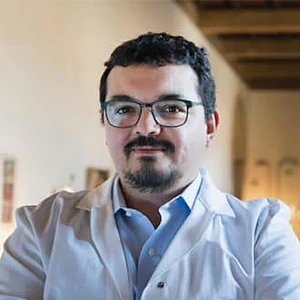
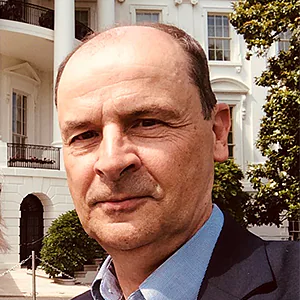
Dr. Thomas A. Burke
Thomas A. Burke, PhD, MPH, is Professor Emeritus at Johns Hopkins University Bloomberg School of Public Health. He is also Director Emeritus of the Johns Hopkins Risk Sciences and Public Policy Institute. Dr. Burke was nominated by President Barack Obama to serve as EPA Assistant Administrator for the Office of Research and Development. From January 2015 until January 2017 Dr. Burke was the EPA Science Advisor and Deputy Assistant Administrator for Research and Development. His research interests include environmental epidemiology and surveillance, population exposures to environmental pollutants, risk assessment and communication, and application of epidemiology and health risk assessment to public policy.
Before joining the University faculty, Dr. Burke was Deputy Commissioner of Health for the State of New Jersey and Director of Science and Research for the New Jersey Department of Environmental Protection. In New Jersey, he directed initiatives that influenced the development of national environmental policies, such as Superfund, the Safe Drinking Water Act, and the Toxics Release Inventory. He was Chair of the National Academy of Sciences Committee on Improving Risk Analysis that produced the report Science and Decisions and served as Chair of the Environmental Health Matters Initiative of the National Academies of Sciences, Engineering and Medicine. He is a Fellow of the Society for Risk Analysis, an Honorary Member of the Society of Toxicology, and a lifetime National Associate of the National Academies.
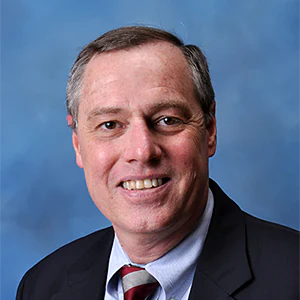
David A. Wirth, Esq.
Professor of Law, and former Director of International Studies, Boston College Law School. Professor Wirth teaches environmental, administrative, public international, and foreign relations law. He has a particularly strong research interest in international environmental law, an area in which he has worked and practiced for more than four decades. In addition to Boston College, he has taught at Harvard, M.I.T., Oxford, the Fletcher School of Law and Diplomacy, and the University of Virginia. His work has appeared in the Yale Law Journal, the Columbia Law Review, the Virginia Law Review, Foreign Policy, the Harvard Environmental Law Review, and the American Journal of International Law.
Previously, he was Senior Attorney and Codirector of International Programs for the Natural Resources Defense Council and Attorney-Advisor for Oceans and International Environmental and Scientific Affairs for the U.S. Department of State. A graduate of Yale Law School, he holds undergraduate and graduate degrees in chemistry from Princeton and Harvard, respectively. Professor Wirth served as law clerk to Judge William H. Timbers of U.S. Court of Appeals for the Second Circuit. He has been the recipient of two Fulbright Fellowships and a National Science Foundation Fellowship. A life member of the Council on Foreign Relations, Professor Wirth is the author of more than five dozen books, articles, and reports on international environmental law and policy for both legal and popular audiences.
Dr. Ann Blake
Dr. Blake is an independent consultant with over 30 years of experience finding safer alternatives to industrial chemicals and materials in global manufacturing. Her work has included creating criteria for environmentally preferable purchasing, ecolabels and product rating systems as well as local, national and international chemicals policy reform. Clients have included the Garfield Foundation’s Cancer-Free Economy Network, San Francisco’s Department of Environment, the Blue-Green Alliance, a US national strategic partnership between labor unions and environmental organizations and IPEN (the International Pollutants Elimination Network), a global network of public interest NGOs.
From 2018 to 2023, Dr. Blake worked with the Berkeley Center for Green Chemistry advising Costco Wholesale, the second largest global retailer, on their chemicals management. Dr. Blake currently serves as the Executive Director of the Jenifer Altman Foundation, supporting environmental health and justice and globally. Dr.Blake has a B.A. from Mount Holyoke College in Massachusetts, and a Ph.D. in molecular genetics and neural development from the University of Oregon.
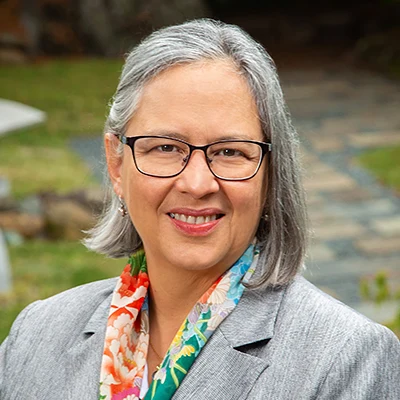
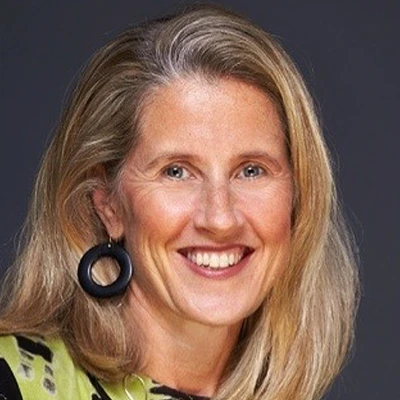
Jeanine Behr Getz
Jeanine is a recognized leader in environmental health advocacy, business consulting, and consumer education, with a strong focus on reducing toxic exposures and promoting preventative health strategies. She has worked with Mount Sinai Children’s Environmental Health Center’s Greening Our Children, helping translate complex scientific research into actionable steps for families, businesses, and policymakers. As the founder of Kids Think Big LLC, Jeanine has developed innovative educational initiatives to inspire sustainable, health-conscious decision-making. She is also the founder of Bring Your Own Connecticut (BYOCT), where she has led successful legislative and community efforts to reduce plastic pollution and toxic chemicals in consumer products.
Her work has influenced industry standards and policy reforms aimed at creating healthier, more sustainable marketplaces. Jeanine’s ability to mobilize stakeholders, craft compelling public health campaigns, and drive legislative change makes her a powerful force in preventive health and environmental protection.
Tanya Lapinski Murphy
Tanya is a decades-long environment and human health advocate and has served on several boards to promote education and research. Boards include The Mount Sinai Children’s Environment Health Center, Healthy Child/Healthy World and she was a founding member of the highly successful Greening Our Children outreach, educational and fundraising organization, that funded groundbreaking research at Mount Sinai.
As a former board member of Unite the World With Africa Foundation, she helped launch the Unite Food Program, a US-based organization that brings small scale farmers’ crops to market throughout Tanzania. She held positions at multiple global companies, such as AT&T and Griffin Travel. Tanya received her MA-COC in Spiritual Psychology from the University of Santa Monica.
During her first pregnancy, she became aware of the delicate link between the environment and human health through the work of Dr. Landrigan and others in this field, which has given her a passion for this service.
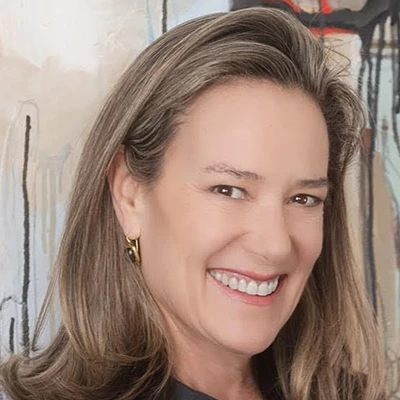
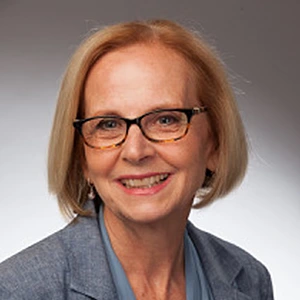
Joan P. Werner
Joan Werner is currently the Global Director of Finance for 100 Women in Finance. Previously, she was Senior Director and Head of Client Services for NYL Investors (Investment Division of New York Life). She was responsible for managing all institutional client activity for the Fixed Income and Private Placements groups. Joan was formally the Director of Marketing and Client Services at Ramius LLC, Cowen. Prior to joining Ramius, she was Director of Marketing for Volaris Advisors.
Joan was also Director of Alternative Investments at Merrill Lynch Investment Managers. She has previously held positions at Bear Stearns Asset Management and at Prudential Financial in the investment management, private placement and insurance areas. Joan served as the Treasurer and Board Member for the Pediatric Oncology Experimental Therapeutics’ Consortium and was a Founding Board Member and Treasurer for 100 Women in Finance for seventeen years. She has also served as Treasurer of Ethos Farm to Health Joan has an MBA from Columbia Business School, an MPH from Columbia University Mailman School of Public Health and a BBA from The Wharton School, University of Pennsylvania.